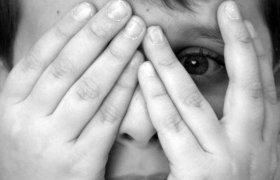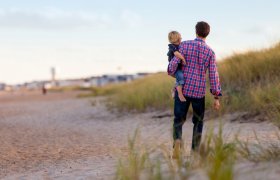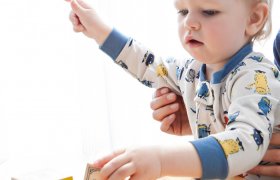10 Things Parents Forget to Baby-proof
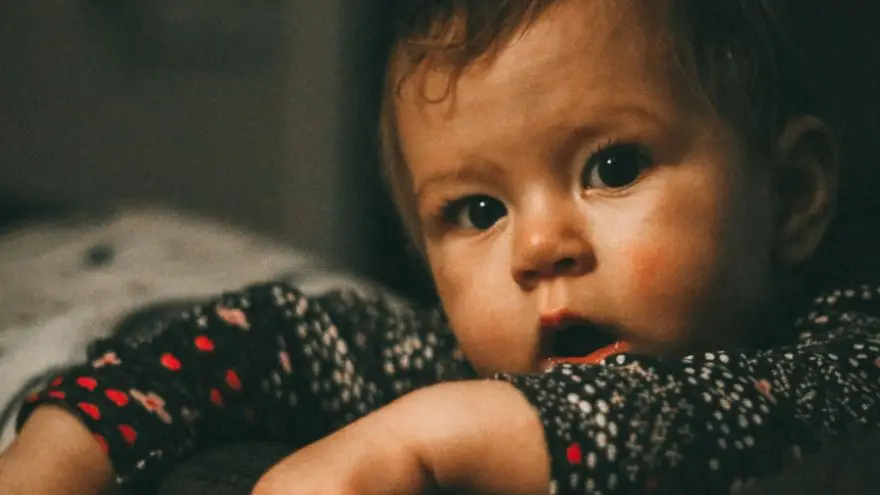
When it comes to baby proofing you may think you’ve got it covered. All the electrical outlets have plug covers, the kitchen cabinet with the cleaning supplies has a cabinet lock, and you even got those little bumper pads for the fireplace hearth. Everything is baby-proof right? Well, not exactly. There are hundreds of special cases that you might be overlooking and even the best books and blogs about baby-proofing can have blind spots when it comes to these. While some baby proofing can wait until your little one is crawling and moving on their own, most of the time it’s just a better idea to take care of it early, like before the baby is born. This is not just so you aren’t caught in a mad dash to get it done when your baby suddenly is on the move, but also because you won’t be as sleep deprived, busy, and financially strained. Additionally, working it out early gives you a little bit of flex-time to really think things through and come up with novel solutions.
In your baby’s room
- Check your baby’s crib for safety, even if it is not antique, many cribs have been subject to recall. From the paint to the features like a drop side or the space between slats, there are a lot of things that can go wrong in a crib. Check first for recalls, many will just require you send in for a new part or a replacement piece. If your crib isn’t on a recall list, you’re still not in the clear. Find the most recent list of safety requirements and make sure your crib passes. Always make sure to use the right size of sheets for your crib so your baby is safe.
- While you’re on the recall list, check everything else baby will use from swings to bassinets, bottle warmers, and even toys. What is cute is not always safe, so be suspicious of everything, even things you were given new at a baby shower. It’s best to know, really know, that the things your baby uses every day are safe. Recall lists are updated regularly so set a date to check them, perhaps on the same date you pay your rent or mortgage, that way you’ll always remember to do it. This is also a great time to re-check your smoke alarms, CO2 alarms and other safety items like the stock in your first aid kit.
- If you have a baby monitor, lamp or anything else that plugs in, make sure the cords are out of baby’s reach and they can’t pull down the object and hurt themselves, also make sure there are no small parts that they may choke on should they be able to grab it from their crib and mouth it.
- Make sure the floor is clear and any rugs are fitted with non-slip pads so those late night feedings don’t turn into late night fallings. Be careful to make sure that your baby’s room grows with your baby. A glider can be a great thing to have in a nursery when your baby is newborn for late night cuddles and feeds, but once your baby is crawling tiny fingers can get caught trying to pull up on the wrong thing.
- Secure all dressers and bookcases to the wall so baby can’t pull them over when trying to stand.
In the living room
6. Check your plants to make sure they are baby-safe as some are not. While you don’t want your baby munching on just any old houseplant, no matter how safe it is, having toxic plants in the house is never a great idea. Keep plants out of your baby’s reach as much as possible, only use baby-safe fertilizer and chemicals in them, and if they’re up on a table make sure that the table is not easy to tip. If you have a plant like an ivy, wrap the vines up, so your baby doesn’t pull on them and topple the plant over.
7. Blinds and window treatments need to be checked to make sure that their cords and tassels are out of baby’s reach.
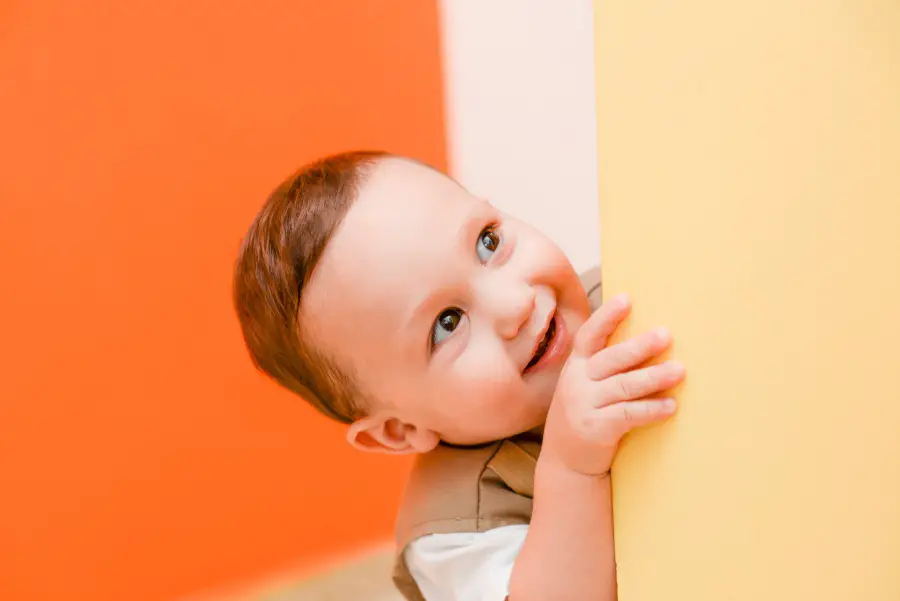 8. Furniture may not only need bumper guards but a little repair. Pull on drawer handles and other small fixtures to make sure they are not loose. If you have a table or console that has drawers or doors that open make sure to baby proof them just like you would a kitchen cabinet or drawer. The TV cords should be kept out of baby’s reach and make sure you secure any battery doors on remote controls.
8. Furniture may not only need bumper guards but a little repair. Pull on drawer handles and other small fixtures to make sure they are not loose. If you have a table or console that has drawers or doors that open make sure to baby proof them just like you would a kitchen cabinet or drawer. The TV cords should be kept out of baby’s reach and make sure you secure any battery doors on remote controls.
In the bathroom
9. You probably already know to lock up cabinets with cleaning chemicals, and to keep your medications and make-up out of reach, but don’t forget to get a locking lid for the toilet so your toddler doesn’t go for a swim, and make sure to adjust the temperature on the hot water heater so that it’s less likely that your baby will scald themselves playing in the tub. While it’s not likely that you’d ever leave them unattended in the bathroom, babies and toddlers have a way of getting into things when you least expect them to.
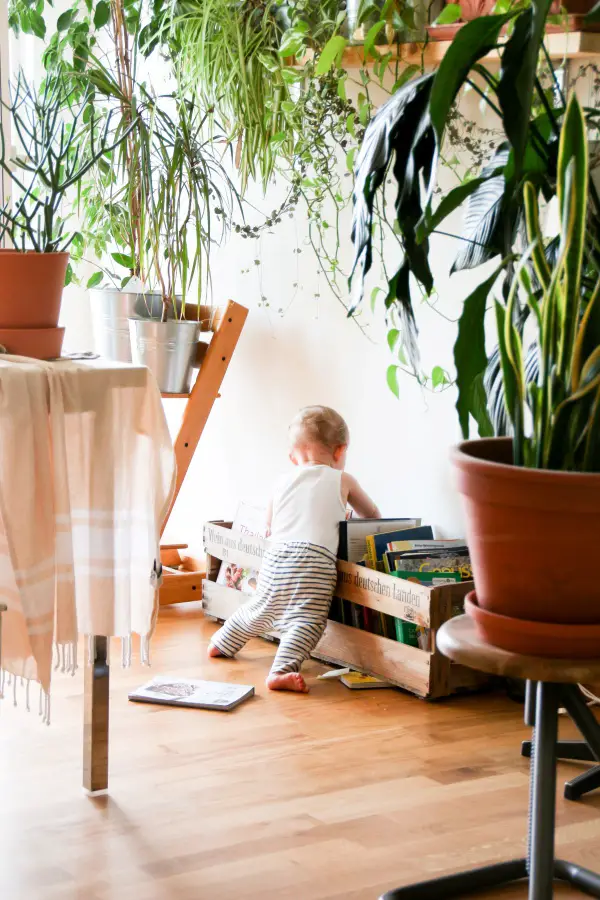 In the kitchen
In the kitchen
10. Aside from the regular advice of keeping cleaners, chemicals, and sharp objects away from babies make sure to check those cabinet handles as well, you don’t want them popping off when baby pulls on them. Keep the trash locked up as well.
Other special cases
Make sure to have a designated spot for purses and bags when you have guests over. Your medicine cabinet may be locked up, but many adults keep their medication on their person and childproof containers may have been foregone for just a pillbox which baby can easily flip open. You may still find other areas of your house that need attention, after all, you are the only one who knows, really knows, your house. Get down on your hands and knees and look around, see what’s within reach. Make a list of problem areas and delegate it out if you need to due to time constraints, being on bed rest, or other circumstances. When everyone pitches in you can get it done in no time and have fewer worries going forward.

